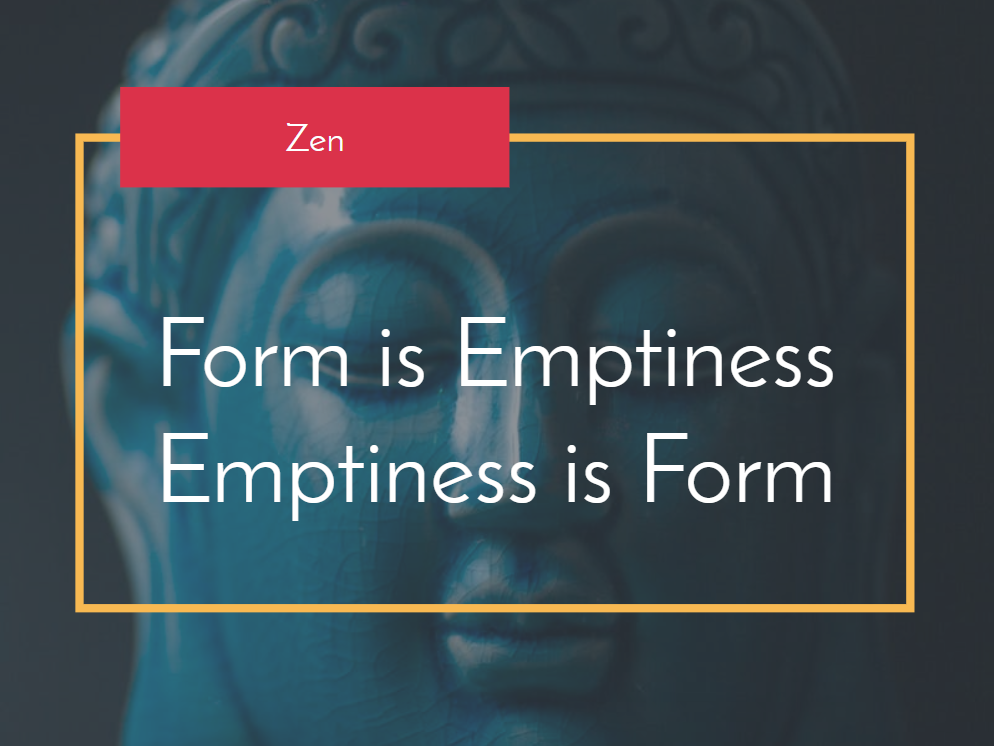"Form is emptiness and emptiness is form" is a statement that is often attributed to the Buddhist philosophy. It is a key concept in Mahayana Buddhism, and it reflects the idea that everything in the universe is interconnected and that all things are fundamentally empty of inherent existence.
The term "form" in this statement refers to the physical, observable aspects of the world around us. This includes everything from our physical bodies to the objects in our environment. It is the tangible, observable reality that we experience in our everyday lives.
On the other hand, "emptiness" refers to the fact that all things in the universe are not truly independent or self-existent. Instead, they are dependent on other factors for their existence, and are ultimately empty of inherent existence. This idea is often referred to as "dependent origination" or "interdependent arising" in Buddhism.
When the statement says "form is emptiness", it means that the physical, observable reality that we experience is ultimately empty of inherent existence. It is dependent on other factors and ultimately illusory. Similarly, when it says "emptiness is form", it means that the emptiness or lack of inherent existence of all things is also the reality that we experience.
This concept is closely related to the Buddhist idea of "no-self" or "anatta" which states that there is no permanent, unchanging self or soul. Instead, the self is a constantly changing, interdependent phenomena.

In summary, "form is emptiness and emptiness is form" is a statement that reflects the idea that all things in the universe are interconnected and empty of inherent existence. It reminds us that our physical reality is ultimately illusory and that everything is dependent on other factors for its existence. This concept is closely related to the Buddhist idea of "no-self" and encourages us to see the world with a more holistic and interconnected perspective.

